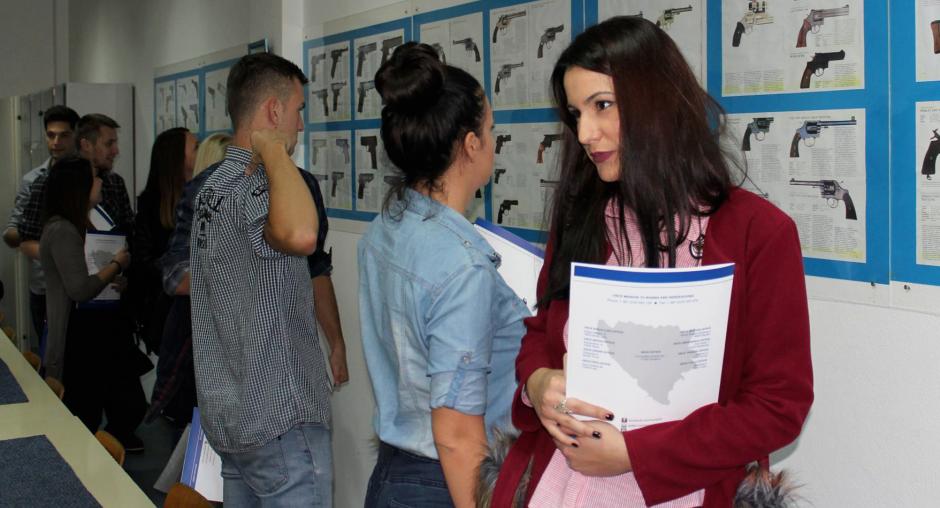Democratizing security through youth empowerment
The majority of young people in Bosnia and Herzegovina (BiH) – those aged between 15 and 35 – perceive their role and personal engagement as weak and insufficient to have an effect on security-related processes. This was the finding of a survey conducted by the Center for International and Security Studies from Banja Luka last year.
Some estimate that the youth unemployment rate in BiH is as high as 63%, an alarming figure that makes researchers wonder whether the lack of socio-economic prospects could explain the youth’s indifference towards security institutions.
These findings, as well as other considerations related to domestic security, were discussed with more than 40 students of law, security, sociology and political science from both public and private universities in BiH at the OSCE’s second annual Youth and Security School.
Enhancing capacity of future leaders
The Youth and Security School aims to improve the knowledge and capacity of future leaders about the Security Policy of BiH, a crucial document that covers all segments of national security and provides guidelines for a unified action of defence and security system. The programme also encourages students to contribute to development of solutions to security issues through constructive dialogue, cross-entity co-operation, and networking.
“This is the first time that students have the possibility to become familiar not only with the Security Policy but also with how the security and defence institutions function in BiH, and to discuss the global challenges, such as terrorism, cyber terrorism and violent extremism,” says Sanja Fitzgerald, National Project Officer at the OSCE’s Security Co-operation Unit.
Some of the leading experts explained the intricacies of the BiH security system comprised of dozens of ministries of internal affairs and law enforcement agencies that span over three distinct layers of government: state level, entity level (Federation of BiH and Republika Srpska), Brcko District, and 10 cantons in the Federation of BiH.
Security policy in action
There is a certain degree of overlap in competencies between the different ministries and police bodies that exist in BiH. “The Security Policy is a complex matter that calls for a multidimensional approach to problem solving, particularly because of the divided competencies among the cantons, entities and state,” says Natasa Bilic, student at the Faculty of Law in Zenica.
The students are given an opportunity to take an active part in the making of the new security policy since the recommendations defined during the School will be presented to the BiH Council of Ministers’ Inter-Ministerial Working on Monitoring of the Implementation of BiH Security Policy, a partner in the project.
“I think of this as a great privilege,” adds Bilic. “Our thoughts, comments, and suggestions will be taken into consideration by the same security experts who lectured us and who work for the institutions we visited during the School.”
Meeting different government officials and civil servants exposed the students to an abundance of practical knowledge that goes beyond textbook theories. “We now have a completely different perception of how the entire security system works,” says law student, Ana Jankovic of the University of Bihac.
Networking and trust building
Networking and building trust among students were important takeaways of the School. Milos Kovacevic, a student of the Faculty of Political Sciences in Banja Luka, hopes to continue discussing present-day topics through the work of the School’s alumni group. “I hope we can join the former generation and form a pool of young people who have received this kind of training and have plunged into issues of importance for the society.”
Other students said they wanted to meet other young people with similar thinking. One such student is Suzana Logara of the Faculty of Philosophy in Mostar. “We shared similar experiences and ideas through different activities. This can encourage us to further our co-operation and inspire us to start a similar project ourselves in the future.”
The role of youth in addressing the constantly evolving security challenges and threats is critical. It is important for the students, as future decision-makers, to continue on this path of co-operation. This will help them find common ground to issues that will surely come.










